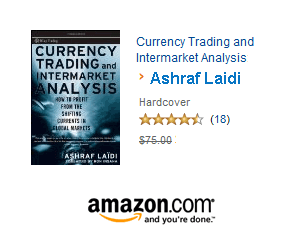Forum > View Topic (Article)
This thread was started in response to the Article:
Risk Aversion Fills Data Vacuum
Market turmoil deepens as US auto manufacturers, retailers and shippers, are forced into making fresh waves of layoffs, feeding off the negative loop from rising employment, falling consumption, lower earnings and eroding bank credit.






JPY is the main focus among Asian currencies. Commodity currencies such as CAD and AUD will stage a sharp rally once 1) the rate cuts in these countries have been played out i.e when cenbanks start getting less dovish and 2) when global growth generally shows signs of stabilization ie seen in the Chinese data. The global part may take place in Q3 2009, but currencies tend to precede these economic data. But also keep an eye on global risk appetite and equities. I cannot emphasize enough how this is paramount in determining the path of commodity FX. Now, if Thursday's rally in Wall Street proves to be a prolonged leg up into year-end (I am expecting one more rally of at least 15% into year-end), then this would be beneficial for commodities, CAD, AUD, NZD and EUR.
Ashraf
Apart from Yen do you track other Asian currencies. I know Korean Won has been hit very badly and considering the high loan to deposit ratio of Korean banks which is financed internationally. Any increase in risk appetite will hurt the korean won. For AUD and CAD the decrease in commodity prices will impact negatively. I think in one of your articles you mentioned the reflation affect of the present economic policies which will have a positive impact on commodity prices going forward. By when do you think this trend will be visible. Only problem in that is that some of the rise in commodity prices has been caused by hedge funds and with most hedge funds liquidating it seems that commodities are going to face downward pressure and the countries that export commodities will have weaker currencies. to add to this is the significant decline in industrial production in China which will reduce incremental demand for commodities. China is the big uncertaintly in all of this- lets see if their stimulus package is able to sustain growth.
Another interesting development is the crisis in Eastern Europe and increase in spreads between Italian/Spanish and German bunds. If the crisis is long and deep as is expected I think Euro may not exist at the end of it.
Deep